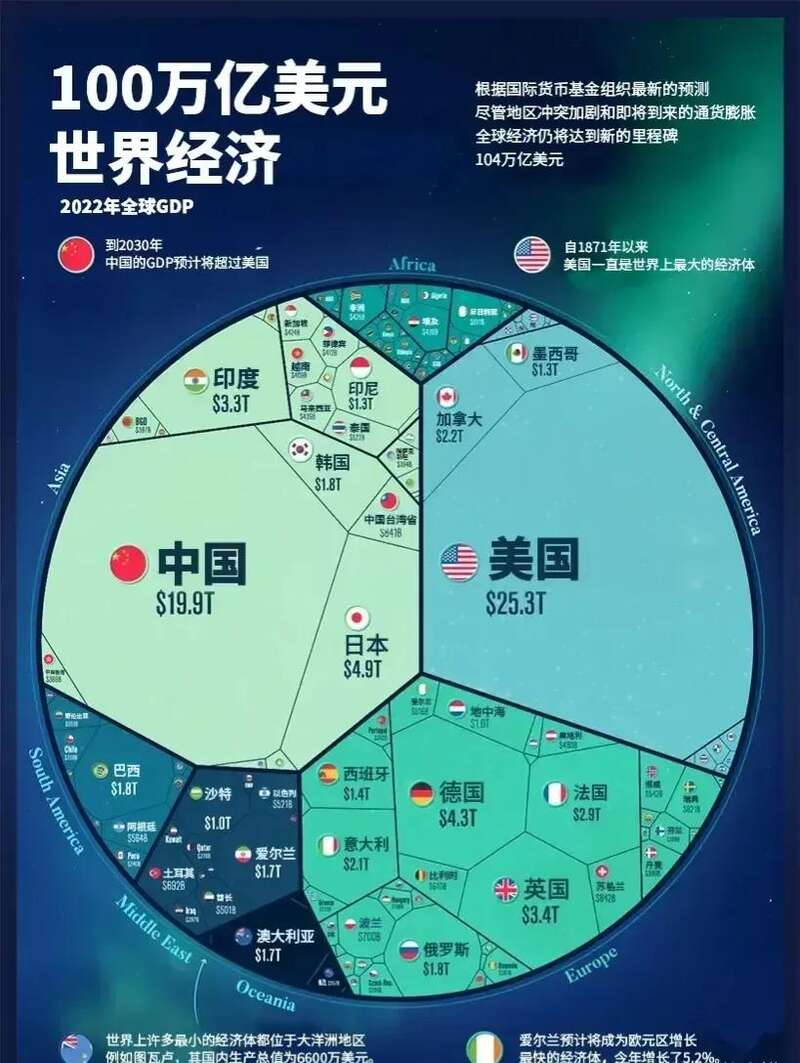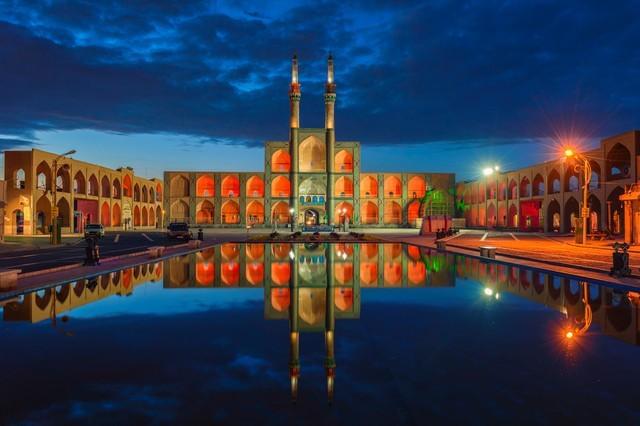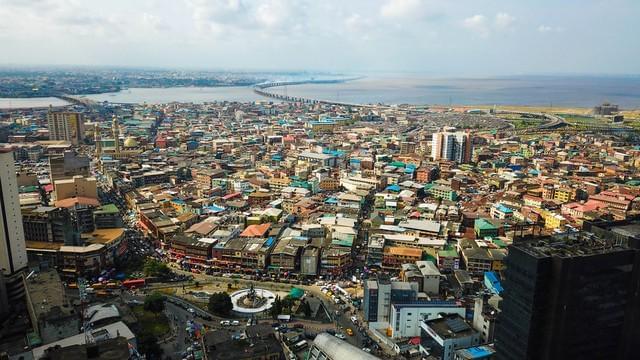今天,从运动队、名人和政治家,到品牌、公司和社交媒体影响力者,所有的东西都有权力排名。当ISA在2017年创建了第一个国家权力排名时,它引起了很多关注,特别是在那些排名比他们预期的稍高的国家。鉴于过去四年世界各地发生的一切,我们认为是时候更新我们的国家力量排名了。
Although such a commitment may seem insignificant, the fact is just the opposite, because it is extremely important for a country to understand its relative strength among its peers in the world. This will help a country make strategic decisions in multiple areas, which will affect its future security, stability and well-being. Of course, there are many misunderstandings about the reasons why a country is strong (or not strong), which may prove to be very dangerous. For example, overestimating a person's ability to wage war may lead to a conflict, which could have been avoided if the country could accurately measure its actual strength and the strength of its opponents.
虽然这样的承诺看似微不足道,但事实恰恰相反,因为对一个国家来说,了解其在世界同行中的相对实力是极其重要的。这有助于一个国家在多个领域做出战略决策,这些决策将影响该国未来的安全、稳定和福祉。当然,人们对一个国家强大(或不强大)的原因有很多误解,这些误解可能被证明是非常危险的。例如,过度估计一个人发动战争的能力可能会导致一场冲突,如果该国能够准确衡量其实际实力以及对手的实力,那么这场冲突本可以避免。
As we know, measuring a country’s power is a controversial undertaking, as the factors that contribute to a country’s power can be debated ad nauseam. Therefore, we have focused on seven main factors that combine to determine a country’s overall level of power.
正如我们所知,衡量一个国家的实力是一项有争议的工作,因为影响一个国家实力的因素可能会引起令人厌恶的争论。因此,我们重点关注了决定一个国家整体实力水平的七个主要因素。

These factors are:
这些因素包括:
Economic Power/经济实力
Demographic Power/ 人口资源
Military Power/军事实力
Environmental and Resource Power/环境和资源实力
Political Power/政治实力
Cultural Power/文化实力
Technological Power/科技实力
The 2022 ISA Country Power Rankings
2022 ISA国家实力排名:
Taking all of these factors into consideration, here is ISA’s list of the 25-most-powerful countries in the world today:
考虑到所有这些因素,ISA列出了当今世界上最强大的25个国家:
 阿联酋
阿联酋#25: United Arab Emirates: Despite having a population of less than ten million, the United Arab Emirates has emerged a significant regional power, thanks to its oil wealth and Dubai’s position as the leading economic center in the Middle East. While demographic and environmental constraints mean that it will be difficult for the UAE to rise higher in these rankings, reaching #25 in the world is nevertheless an impressive feat.
#25:阿拉伯联合酋长国:尽管阿联酋人口不足1000万,但由于其石油财富和迪拜作为中东主要经济中心的地位,阿拉伯联合酋长国有一个重要的地区强国。虽然人口和环境限制意味着阿联酋很难在这些排名中上升,但在世界排名中排名第25位仍然是一项令人印象深刻的成就。

南非
#24: South Africa: Once the leading power in Sub-Saharan Africa by a large margin, South Africa has seen its relative power decline in the 21st century due to a sluggish economy and worsening internal divisions. Looking ahead, South Africa does have the means to reverse this downwards trend, but there are few signs at the moment that South Africa will regain much of its lost power.
#24:南非:南非曾经是撒哈拉以南非洲地区的领先大国,但由于经济低迷和内部分裂加剧,南非在21世纪的相对实力有所下降。展望未来,南非确实有办法扭转这种下降趋势,但目前几乎没有迹象表明南非将恢复其大部分失去的力量。

埃及
#23: Egypt: With a population of 100 million and a strategic location at the juncture of Africa and Asia, Egypt retains considerable power despite an overall perception of weakness. However, to regain the status that it once held in the world, Egypt will have to do much more to grow and modernize its economy, while at the same time finding a way to lift tens of millions of Egyptians out of poverty.
#23:埃及:埃及人口1亿,地处非洲和亚洲交界处的战略要地,尽管总体上认为埃及实力较弱,但埃及仍拥有相当大的实力。然而,为了重新获得它曾经在世界上的地位,埃及将不得不做更多的事情来发展和现代化其经济,同时找到一种方法使数千万埃及人摆脱贫困。

以色列
#22: Israel: The country with the smallest population in our rankings of the 25 most powerful countries in the world, Israel benefits from having one of the most technologically-advanced economies in the world, as well as a powerful military. However, demographic and environmental constraints indicate that it will be hard for Israel to move much higher on this list.
#第22名:以色列:以色列是世界上25个最强大国家中人口最少的国家,以色列拥有世界上技术最先进的经济体之一以及强大的军队,因此受益匪浅。然而,人口和环境的限制表明,以色列很难在这一名单上走得更远。

#21: Pakistan: Thanks to its population of 225 million people and its arsenal of nuclear weapons, Pakistan ranks this high, despite all of its economic woes and internal divisions. While Pakistan’s demographic might gives it the potential to move up these rankings in the future, it must overcome a myriad of challenges, including widespread poverty, a lack of natural resources and major internal and external threats.
#21:巴基斯坦:由于拥有2.25亿人口和核武器库,巴基斯坦排名如此之高,尽管存在经济困境和内部分歧。尽管巴基斯坦的人口优势使其有可能在未来提升这些排名,但它必须克服各种挑战,包括普遍贫困、自然资源匮乏以及主要的内部和外部威胁。

#20: Iran: While years of economic sanctions have crippled the country’s current economic power, Iran still retains many factors that enhance its power on the global stage, including a strategic location and significant cultural influence. However, for Iran to rise to its true potential power, it will need to reconnect its economy with the rest of the world and modernize nearly all aspects of the country.
#20:伊朗:尽管多年的经济制裁削弱了该国目前的经济实力,但伊朗仍保留了许多增强其在全球舞台上实力的因素,包括战略位置和重大的文化影响力。然而,伊朗要想崛起成为真正的潜在力量,它需要将其经济与世界其他地区重新连接起来,并实现该国几乎所有方面的现代化。

尼日利亚
#19: Nigeria: With a population of 211 million, Nigeria is easily Africa’s most-populous country, and much its power is derived from its massive population. However, the country’s deep internal divisions, lack of infrastructure and relative poverty mean that it will take a great deal of change to move Nigeria up these rankings, despite its key position in Africa, a region that will add one billion people to the world’s population over the next 30 years.
#第19名:尼日利亚:尼日利亚拥有2.11亿人口,很容易成为非洲人口最多的国家,其力量很大程度上来自于其庞大的人口。然而,该国内部的严重分裂、基础设施的缺乏和相对贫困意味着,尽管尼日利亚在非洲处于关键地位,但要想使其排名上升,还需要做出很大的改变。在未来30年里,该地区将使世界人口增加10亿。

西班牙
#18: Spain: Spain is often overlooked when it comes to European powers, but its modern economy and extensive ties with Latin America allow the country to play a relatively large role in regional and global affairs. However, the country’s poor economic performance over the past 15 years means that Spain may be reaching the limits of its global power, and with a looming demographic crisis, Spain could see its power begin to decline.
#18:西班牙:西班牙在欧洲大国中经常被忽视,但其现代经济和与拉丁美洲的广泛联系使该国在地区和全球事务中发挥了相对较大的作用。然而,该国过去15年的经济表现不佳,这意味着西班牙可能正在达到其全球实力的极限,随着人口危机的迫近,西班牙的实力可能会开始下降。

墨西哥
#17: Mexico: Mexico is Latin America’s second-largest country in terms of population and economic output, and its global influence has increased in recent years. However, no matter how much power Mexico manages to accrue, it will continue to be overshadowed by its giant neighbor to the north and this will limit Mexico’s ability to expand its relative power in the years ahead.
#17:墨西哥:就人口和经济产出而言,墨西哥是拉丁美洲第二大国家,近年来其全球影响力有所增强。然而,无论墨西哥获得了多少权力,它将继续被其北方的巨大邻国所掩盖,这将限制墨西哥在未来几年扩大其相对权力的能力。

印度尼西亚
#16: Indonesia: With the world’s fourth-largest population (270 million), Indonesia is undoubtedly one of the world’s most important countries. Furthermore, its strong economic performance so far in the 21st century has significantly boosted its overall power. However, the geographic nature of the country (more than 17,500 islands) suggests that centralizing the country’s power will be a difficult task.
#第16名:印度尼西亚:印度尼西亚拥有世界第四大人口(2.7亿),无疑是世界上最重要的国家之一。此外,其在21世纪迄今的强劲经济表现显著提升了其整体实力。然而,该国的地理性质(17500多个岛屿)表明,集中国家权力将是一项艰巨的任务。

#15: Italy: Italy is often considered Europe’s fourth-leading power (behind Germany, France and the United Kingdom), despite having populations and economies that are close in size to the latter two of these three countries). Unfortunately for Italy, its dreadful economic performance in recent decades and its lack of military power prevent it from possessing the same level of power as these other European powers.
#第15名:意大利:意大利经常被认为是欧洲的第四大强国(仅次于德国、法国和英国),尽管其人口和经济规模接近这三个国家中的后两个)。不幸的是,意大利近几十年来糟糕的经济表现以及缺乏军事力量,使其无法拥有与其他欧洲国家同等的实力。

#14: Turkey: Thanks to its strategic position at the crossroads of Asia and Europe, Turkey will always possess some significant geographic advantages. Furthermore, Turkey’s economic and political influence has grown in recent years, boosting the country’s overall level of power. If these trends continue, Turkey has to potential to remain one of the world’s more influential countries for some time to come.
#14:土耳其:由于土耳其处于亚洲和欧洲的十字路口,土耳其将始终拥有一些重要的地理优势。此外,近年来,土耳其的经济和政治影响力不断增强,提升了该国的整体实力水平。如果这些趋势继续下去,土耳其在未来一段时间内仍有可能成为世界上最具影响力的国家之一。

韩国
#13: South Korea: Sixty years ago, South Korea would have been nowhere near a place in these rankings, but thanks to one of the world’s most dynamic and high-tech economies, South Korea has seen its relative power soar in recent decades. The ability to retain a strong position in high-tech and high-growth industries will be key to South Korea’s ability to maintain this high level of power in the future.
#13: 韩国:60年前,韩国在这些排行榜上的排名还远远不够,但得益于世界上最具活力和高科技的经济体之一,近几十年来,韩国的相对实力飙升。在高科技和高增长产业中保持强大地位的能力将是韩国未来保持这种高水平实力的关键。

澳大利亚
#12: Australia: The only country that is also a continent, Australia is one of the world’s most-geographically-powerful countries in the world, while it is also home to one of the world’s most successful economies. Looking ahead, Australia has the potential to become an even-more powerful country in the coming years thanks to its vast territory and resources, and its room for further population growth.
#12:澳大利亚:澳大利亚是唯一一个也是一个大陆的国家,它是世界上地理上最强大的国家之一,也是世界上最成功的经济体之一。展望未来,由于其广阔的领土和资源,以及人口进一步增长的空间,澳大利亚有潜力在未来几年成为一个更加强大的国家。

沙特阿拉伯
#11: Saudi Arabia: Thanks to some of the world’s largest and most easily accessible hydrocarbon resources, Saudi Arabia’s global economic influence is substantial. Likewise, as the home of Islam’s holiest sites, the country also enjoys a great deal of cultural influence around the world. However, its future power will be determined by the country’s ability to modernize and diversify its economy.
#11:沙特阿拉伯:得益于世界上最大和最容易获得的一些碳氢化合物资源,沙特阿拉伯的全球经济影响力巨大。同样,作为伊斯兰教圣地的所在地,该国也在世界各地享有巨大的文化影响力。然而,其未来的实力将取决于该国实现经济现代化和多样化的能力。

加拿大
#10: Canada: Canada has the smallest population of any country ranked in the top ten most-powerful countries in the world, but it has massive geographic power and a high degree of security and stability. Looking ahead, while Canada’s power will continue to be overshadowed by that of its southern neighbor, it has the potential to dramatically increase its own power in the decades ahead.
#第10名:加拿大:加拿大是世界上排名前十的最强大国家中人口最少的国家,但它拥有巨大的地理力量和高度的安全与稳定。展望未来,尽管加拿大的实力将继续被其南部邻国的实力所掩盖,但它有可能在未来几十年内大幅提升自身的实力。

德国
#9: Germany: Germany’s power now largely rests on the country’s vast manufacturing sector, which drives one of the world’s leading export economies. Germany is also a significant technological power. However, demographic, environmental and military power in Germany is quite low for such an important economic power, and these factors will continue to limit overall German power in the future.
#9:德国:德国的实力现在主要依赖于该国庞大的制造业,而制造业是世界领先的出口经济体之一。德国也是一个重要的技术强国。然而,对于这样一个重要的经济大国来说,德国的人口、环境和军事实力相当低,这些因素将在未来继续限制德国的整体实力。

巴西
#8: Brazil: Despite its economic and political troubles in recent years, Brazil remains the leading power in Latin America by a wide margin, thanks to its vast population and territory. Nevertheless, Brazil has the potential to be a much more powerful country, but has been held down by its struggling economy, tumultuous politics and its overall lack of military and technological power.
#第8名:巴西:尽管近年来经济和政治问题重重,但由于其人口和领土辽阔,巴西仍然以很大的优势在拉丁美洲保持领先地位。尽管如此,巴西有潜力成为一个强大得多的国家,但由于其艰难的经济、动荡的政治以及军事和技术力量的整体缺乏,巴西一直受到压制。

英国
#7: United Kingdom: As late as the late 19th century or early 20th century, the United Kingdom was by many measures the most powerful country in the world. However, it has fallen steadily in terms of global power since then due to geographic and demographic constraints. Nevertheless, the UK’s strong economy, technological prowess and its large cultural influence all mean that it remains a solid middle power on the global stage.
#7:英国:早在19世纪末或20世纪初,英国在许多方面都是世界上最强大的国家。然而,由于地理和人口的限制,自那时以来,其全球影响力稳步下降。尽管如此,英国强大的经济、技术实力和巨大的文化影响力都意味着它在全球舞台上仍然是一个稳固的中等强国。

法国
#6: France: France edges out the United Kingdom for sixth place by the smallest of margins, thanks in large part to its role as the leading political power in the European Union. However, France’s position is threatened by a moribund economy and lower power potentials than many of its larger international rivals, and it has little prospect of ever moving higher in these rankings.
#第六名:法国:法国以最小的优势领先英国,位居第六,这在很大程度上得益于其作为欧盟主要政治力量的作用。然而,与许多大型国际竞争对手相比,法国的地位受到了经济衰退和电力潜力下降的威胁,在这些排名中几乎没有上升的前景。

日本
#5: Japan: As the world’s third-largest economy, Japanese power in recent decades has largely be focused on the economic and technological sectors, as Japan’s political and military power remains relatively constrained. Meanwhile, it is Japan’s demographic decline that has the most potential to reduce the country’s overall level of power, as Japan faces one of the world’s largest population declines in the coming years.
#5:日本:作为世界第三大经济体,近几十年来,由于日本的政治和军事力量仍然相对受限,日本的力量主要集中在经济和技术领域。与此同时,由于日本在未来几年面临着世界上最大的人口下降之一,日本人口下降最有可能降低该国的整体实力水平。

俄罗斯
#4: Russia: Russia, as the leading component of the Soviet Union, was considered to be the world’s second-most-powerful country in the world from the 1940s until the early 1990s. However, the dissolution of the Soviet Union led to a dramatic reduction in Russia’s military and demographic power. Today, Russia’s power derives largely from its vast natural resources and its residual political and military power.
俄罗斯:从20世纪40年代到90年代初,俄罗斯作为苏联的主要组成部分,被认为是世界上第二强大的国家。然而,苏联解体导致俄罗斯的军事和人口实力急剧下降。今天,俄罗斯的力量主要来源于其巨大的自然资源及其残余的政治和军事力量。

印度
#3: India: India’s power on the global stage has steadily increased in recent decades, thanks largely to its massive population and its increasing economic influence. However, India faces many constraints that will make it difficult for the country to overtake either of the two countries ahead of it in these rankings, including its relative weakness in terms of political, military and geographic power.
第三名:印度:印度在全球舞台上的实力在近几十年稳步增长,这主要归功于其庞大的人口和日益增长的经济影响力。然而,印度面临许多制约因素,这将使该国很难在这些排名中超越领先的两个国家,包括其在政治、军事和地理实力方面的相对劣势。

中国
#2: China: China’s increasing power is evident in the fact that its influence is now felt in nearly all corners of the world, an amazing transformation that has taken place over a period of just four decades. China’s massive population, its fast-growing economy, its technological advancements and its increasing military might all combine to make China a superpower. The only question now is whether or not China can rise to the top spot in these rankings at some point in the future.
第二名:中国:中国的实力日益增强,这一事实很明显,它的影响力现在几乎遍及世界各个角落,这是一个在短短40年内发生的惊人转变。中国庞大的人口、快速增长的经济、技术进步和不断增长的军事力量,都可能使中国成为超级大国。现在唯一的问题是,中国是否能在未来某个时候在这些排行榜上排名第一。

美国
#1: USA: The United States has held the position of the world’s most-powerful country since at least the early 20th century. While its relative power peaked in the 1990s, the US, unlike most other developed economies, has continued to expand its power in most areas in recent decades. Nevertheless, increasing concerns about the state of politics in the US, as well as new demographic concerns, will threaten overall US power. Nevertheless, the United States will remain the world’s most powerful country for some time to come.
第1名:美国:至少从20世纪初起,美国一直是世界上最强大的国家。虽然美国的相对实力在20世纪90年代达到顶峰,但与大多数其他发达经济体不同,近几十年来,美国在大多数领域的实力都在不断扩大。然而,对美国政治状况的日益担忧以及新的人口问题将威胁到美国的整体实力。尽管如此,美国在未来一段时间内仍将是世界上最强大的国家。
The Global Balance of Power/全球力量平衡
From these rankings, you can clearly see that the size of the country's population and territory still plays a huge role in determining its position in the global ranking of countries. In addition to these two factors, technology also continues to play an important role. As we have seen many times in history, technologically advanced countries can overcome population or territorial deficiencies. At the same time, soft power continues to play an important role in determining a country's overall strength level, but the accumulation of soft power almost always depends on the country's having a certain degree of hard power.
从这些排名中你可以清楚地看到,该国的人口和领土规模仍然在决定其在全球国家排名中的地位方面发挥着巨大作用。除了这两个因素之外,技术也继续发挥着重要作用,正如我们在历史上多次看到的那样,技术先进的国家能够克服人口或领土方面的不足。与此同时,软实力在决定一个国家的整体实力水平方面继续发挥着重要作用,但软实力的积累几乎总是取决于该国拥有一定程度的硬实力。
In general, the United States still ranks first in the world in terms of health, because it has no shortcomings in any aspect. At the same time, China has become the undisputed second largest power in the world. With the continuous modernization of its economy and military, it will gradually become a major power challenging the United States later this century.
总的来说,美国仍然以健康的优势稳居世界第一,因为它在任何方面都不存在不足。与此同时,中国已成为世界上无可争议的第二大强国,随着其经济和军事不断现代化,它将在本世纪晚些时候逐步成为挑战美国的大国。
As for other countries in the world, they found themselves far behind the two superpowers. Few of them have the ability to catch up with the United States and China, let alone narrow the existing power gap. Some large emerging markets, especially India, do have the potential to accumulate more strength, but there is still a long way to go to challenge the United States and China. Therefore, the global balance of power in the coming years and decades will continue to depend on the relationship between the United States and China. If the competition between the two superpowers continues to intensify, other countries in the world will be forced to choose sides.
至于世界其他国家,他们发现自己远远落后于这两个超级大国,其中很少有国家有能力赶上美国和中国,更不用说缩小现有的实力差距了。一些大型新兴市场,尤其是印度,确实有潜力积累更多力量,但要挑战美国和中国,还有很长的路要走。因此,未来几年和几十年的全球力量平衡将继续取决于美国和中国之间的关系,如果这两个超级大国之间的竞争继续加剧,世界其他国家将被迫选边站。

